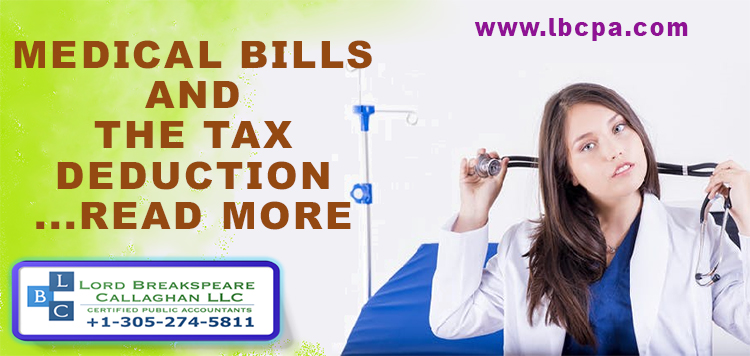LBCPA News 
Click here to go back
-IS "BUNCHING" MEDICAL EXPENSES STILL FEASIBLE IN 2019?

Some medical expenses may be tax deductible, but only if you itemize deductions and you have enough expenses to exceed the applicable floor for deductibility. With proper planning, you may be able to time controllable medical expenses to your tax advantage.
The Tax Cuts and Jobs Act (TCJA) made bunching such expenses beneficial for some taxpayers. At the same time, certain taxpayers who’ve benefited from the medical expense deduction in previous years might no longer benefit because of the TCJA’s increase to the standard deduction.
The changes
Various limits apply to most tax deductions, and one type of limit is a “floor,” which means expenses are deductible only to the extent that they exceed that floor (typically a specific percentage of your income). One example of a tax break with a floor is the medical expense deduction.
Because it can be difficult to exceed the floor, a common strategy is to “bunch” deductible expenses into one year where possible. The TCJA reduced the floor for the medical expense deduction for 2017 and 2018 from 10% to 7.5% of adjusted gross income (AGI).
However, beginning January 1, 2019, taxpayers may once again deduct only the amount of the unreimbursed allowable medical care expenses for the year that exceeds 10% of their AGI. Medical expenses that aren’t reimbursed by insurance or paid through a tax-advantaged account (such as a Health Savings Account or Flexible Spending Account) may be deductible.
Itemized deductions
If your total itemized deductions won’t exceed your standard deduction, bunching medical expenses into 2019 won’t save you tax. The TCJA nearly doubled the standard deduction. For 2019, it’s $12,200 for singles and married couples filing separately, $18,350 for heads of households, and $24,400 for married couples filing jointly.
If your total itemized deductions for 2019 will exceed your standard deduction, then bunching nonurgent medical procedures and other controllable expenses into 2019 may allow you to exceed the floor and benefit from the medical expense deduction. Controllable expenses might include prescription drugs, eyeglasses, contact lenses, hearing aids, dental work, and some types of elective surgery.
Exploring the concept
As mentioned, bunching doesn’t work for everyone. For help determining whether you could benefit, please contact us.
If you have any questions regarding Essential Business Accounting, Domestic Taxation, International Taxation, IRS Representation, U.S. Tax Implications of Real Estate Transactions or Financial Statements, please give us a call at 305-274-5811.
Source: Thomson Reuters






